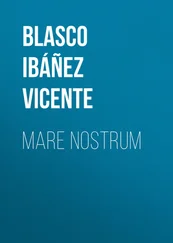Vicente Blasco Ibáñez - Woman Triumphant (La Maja Desnuda)
Здесь есть возможность читать онлайн «Vicente Blasco Ibáñez - Woman Triumphant (La Maja Desnuda)» — ознакомительный отрывок электронной книги совершенно бесплатно, а после прочтения отрывка купить полную версию. В некоторых случаях можно слушать аудио, скачать через торрент в формате fb2 и присутствует краткое содержание. Жанр: foreign_prose, foreign_antique, на английском языке. Описание произведения, (предисловие) а так же отзывы посетителей доступны на портале библиотеки ЛибКат.
- Название:Woman Triumphant (La Maja Desnuda)
- Автор:
- Жанр:
- Год:неизвестен
- ISBN:нет данных
- Рейтинг книги:5 / 5. Голосов: 1
-
Избранное:Добавить в избранное
- Отзывы:
-
Ваша оценка:
- 100
- 1
- 2
- 3
- 4
- 5
Woman Triumphant (La Maja Desnuda): краткое содержание, описание и аннотация
Предлагаем к чтению аннотацию, описание, краткое содержание или предисловие (зависит от того, что написал сам автор книги «Woman Triumphant (La Maja Desnuda)»). Если вы не нашли необходимую информацию о книге — напишите в комментариях, мы постараемся отыскать её.
Woman Triumphant (La Maja Desnuda) — читать онлайн ознакомительный отрывок
Ниже представлен текст книги, разбитый по страницам. Система сохранения места последней прочитанной страницы, позволяет с удобством читать онлайн бесплатно книгу «Woman Triumphant (La Maja Desnuda)», без необходимости каждый раз заново искать на чём Вы остановились. Поставьте закладку, и сможете в любой момент перейти на страницу, на которой закончили чтение.
Интервал:
Закладка:
The painter said "yes" to everything, eager to have his brush in hand as soon as possible, before the beauty he craved. For three days he worked with a mad fever, with his eyes unnaturally wide open, as if he meant to devour the graceful outlines with his sight. Josephina, accustomed now to being naked, posed with unconscious abandon, with that feminine shamelessness which hesitates only at the first step. Oppressed by the heat, she slept while her husband kept on painting.
When the work was finished, Josephina could not help admiring it. "How clever you are! But am I really like that, so pretty?" Mariano showed his satisfaction. It was his masterpiece, his best. Perhaps in all his life he might never find another moment like that, of prodigious mental intensity, what people commonly call inspiration. She continued to admire herself in the canvas, just as she did some mornings in the great mirror in the bedroom. She praised the various parts of her beauty with frank immodesty. Dazzled by the beauty of her body she did not notice the face, that seemed unimportant, lost in soft veils. When her eyes fell on it she showed a sort of disappointment.
"It doesn't look much like me! It isn't my face!"
The artist smiled. It was not she; he had tried to disguise her face, nothing but her face. It was a mask, a concession to social conventions. As it was, no one would recognize her and his work, his great work, might appear and receive the admiration of the world.
"Because, we aren't going to destroy it," Renovales continued with a tremble in his voice, "that would be a crime. Never in my life will I be able to do anything like it again. We won't destroy it, will we, little girl?"
The little girl remained silent for a good while with her gaze fixed on the picture. Renovales' eager eyes saw a cloud slowly rise over her face, like a shadow on a white wall. The painter felt as though the floor were sinking under his feet; the storm was coming. Josephina turned pale, two tears slipped slowly down her cheeks, two others took their places to fall with them and then more and more.
"I won't! I won't!"
It was the same hoarse, nervous, despotic cry that had set his hair on end with anxiety and fear that night in Rome. The little woman looked with hatred at the naked body that radiated its pearly light from the depths of the canvas. She seemed to feel the terror of a sleep-walker who suddenly awakens in the midst of a square surrounded by a thousand curious, eager eyes and in her fright does not know what to do nor where to flee. How could she have assented to such a disgraceful thing?
"I won't have it!" she cried angrily. "Destroy it, Mariano, destroy it."
But Mariano seemed on the point of weeping too. Destroy it! Who could demand such a foolish thing? That figure was not she; no one would recognize her. What was the use of depriving him of a signal triumph? But his wife did not listen to him. She was rolling on the floor with the same convulsions and moans as on the night of the stormy scene, her hands were clenched like a crook, her feet kicked like a dying lamb's and her mouth, painfully distorted, kept crying hoarsely:
"I won't have it! I won't have it! Destroy it!"
She complained of her lot with a violence that wounded Renovales. She, a respectable woman, submitted to that degradation as if she were a street walker. If she had only known! How was she going to imagine that her husband would make such abominable proposals to her!
Renovales, offended at these insults, at these lashes which her shrill, piercing voice dealt his artistic talent, left his wife, let her roll on the floor and with clenched fists, went from one end of the room to the other, looking at the ceiling, muttering all the oaths, Spanish and Italian, that were in current use in his studio.
Suddenly he stood still, rooted to the floor by terror and surprise. Josephina, still naked, had jumped on the picture with the quickness of a wild cat. With the first stroke of her finger nails, she scratched the canvas from top to bottom, mingling the colors that were still soft, tearing off the thin shell of the dry parts. Then she caught up the little knife from the paint box and—rip! the canvas gave a long moan, parted under the thrust of that white arm which seemed to have a bluish cast in the violence of her wrath.
He did not move. For a moment he felt indignant, tempted to throw himself on her but he lapsed into a childish weakness, ready to cry, to take refuge in a corner, to hide his weak, aching head. She, blind with wrath, continued to vent her fury on the picture, tangling her feet in the wood of the frame, tearing off pieces of canvas, walking back and forth with her prey like a wild beast. The artist had leaned his head against the wall, his strong breast shook with cowardly sobs.
To the almost fatherly grief at the loss of his work was added the bitterness of disappointment. For the first time he foresaw what his life was going to be. What a mistake he had made in marrying that girl who admired his art as a profession, as a means of making money, and who was trying to mold him to the prejudices and scruples of the circle in which she was born! He loved her in spite of this and he was certain that she did not love him less, but, still, perhaps it would have been better to remain alone, free for his art and, in case a companion was necessary, to find a fair maid of all work with all the splendor and intellectual humility of a beautiful animal that would admire and obey her master blindly.
Three days passed in which the painter and his wife hardly spoke to each other. They looked at each other askance, humbled and broken by this domestic trouble. But the solitude in which they lived, the necessity of remaining together made the reconciliation imperative. She was the first to speak, as if she were terrified by the sadness and dejection of that huge giant who wandered about as peevish as a sick man. She threw her arms around him, kissed his forehead, made a thousand gracious efforts to bring a faint smile to his face. "Who loved him? His Josephina. His Maja but not his Maja Desnuda; that was over forever. He must never think of those horrible things. A decent painter does not think of them. What would all her friends say? There were many pretty things to paint in the world. They must live in each other's love, without his displeasing her with his hateful whims. His affection for the nude was a shameful remnant of his Bohemian days."
And Renovales, won over by his wife's petting, made peace,—tried to forget his work and smiled with the resignation of a slave who loves his chain because it assures him peace and life.
They returned to Rome at the beginning of the fall. Renovales began his work for the contractor, but after a few months the latter seemed dissatisfied. Not that Signor Mariano was losing power, not at all, but his agents complained of a certain monotony in the subjects of his works. The dealer advised him to travel; he might stay awhile in Umbria, painting peasants in ascetic landscapes, or old churches; he might—and this was the best thing to do—move to Venice. How much Signor Mariano could accomplish in those canals! And it was thus that the idea of leaving Rome first came to the painter.
Josephina did not object. That daily round of receptions in the countless embassies and legations was beginning to bore her. Now that the charm of the first impressions had disappeared, Josephina noticed that the great ladies treated her with an annoying condescension as if she had descended from her rank in marrying an artist. Besides, the younger men in the embassies, the attachés of different nationalities, some light, some dark, who sought relief from their celibacy without going outside diplomatic society, were disgracefully impudent as they danced with her or went through the figures of a cotillion, as if they considered her an easy conquest, seeing her married to an artist who could not display an ugly uniform in the drawing rooms. They made cynical declarations to her in English or German and she had to keep her temper, smiling and biting her lips, close to Renovales, who did not understand a word and showed his satisfaction at the attentions of which his wife was the object on the part of the fashionable youths whose manners he tried to imitate.
Читать дальшеИнтервал:
Закладка:
Похожие книги на «Woman Triumphant (La Maja Desnuda)»
Представляем Вашему вниманию похожие книги на «Woman Triumphant (La Maja Desnuda)» списком для выбора. Мы отобрали схожую по названию и смыслу литературу в надежде предоставить читателям больше вариантов отыскать новые, интересные, ещё непрочитанные произведения.
Обсуждение, отзывы о книге «Woman Triumphant (La Maja Desnuda)» и просто собственные мнения читателей. Оставьте ваши комментарии, напишите, что Вы думаете о произведении, его смысле или главных героях. Укажите что конкретно понравилось, а что нет, и почему Вы так считаете.












